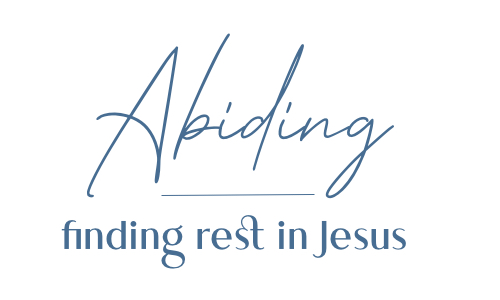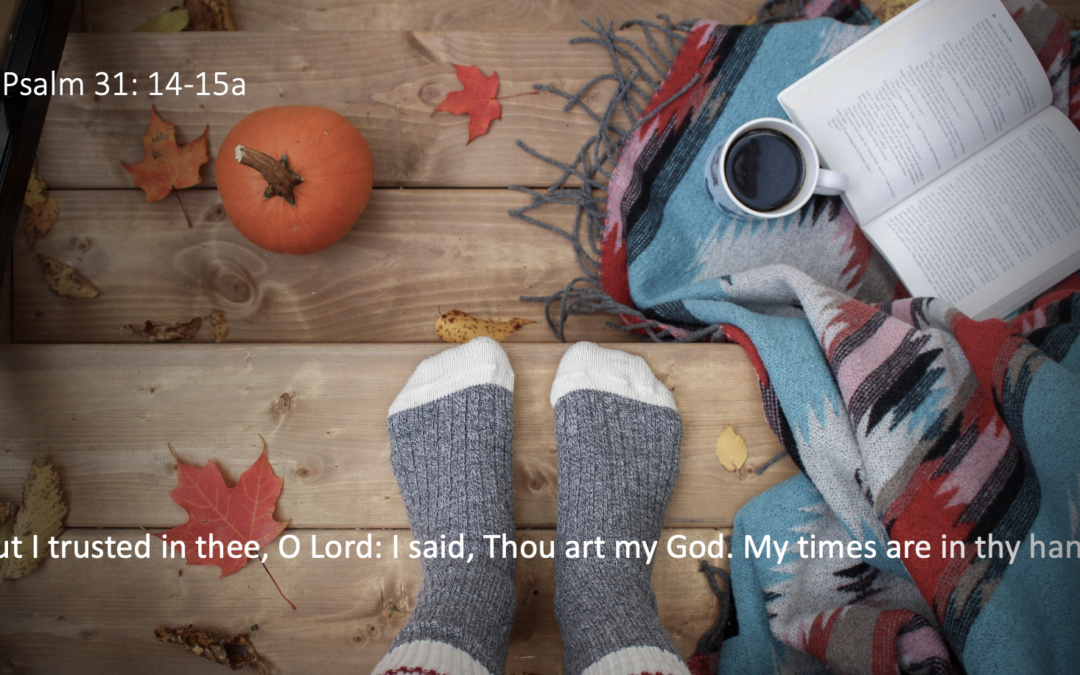It’s a pleasure to hear from Delaney Johston this week! Take a moment and read what the Lord laid on her heart. Want to know a bit more about her? Stop by the contributors page.
As evidence of his humble trust, the psalmist penned these words during what, ironically, is often considered one of his darkest seasons of life.
More than likely written during David’s flight from a bloodthirsty Saul, Psalm 31 paints a striking portrait of desperation, fear, weakness, and pain converging with a “man after God’s own heart” (1 Sam. 13:14) who had trained himself to respond to life’s many challenges with an unshakable dependence upon God—his Refuge, Rock, and Strong Fortress (v. 1-2).
The whole psalm is powerful—a hearty dose of comfort for those needing spiritual nourishment during times of trouble.
However, it is the beginning portion of verse 15, in particular, that has stood out to me—over and over again.
David writes, “My times are in your Hand.”
Simple yet profound, isn’t it?
This statement bleeds with surrender—it is an honest expression of a trust-filled heart, a humble embodiment of true dependence.
It depicts a soul that has quieted itself before God—one that does not exercise itself in matters too lofty for the finite mind but rather commits everything to the care of its Master (Ps. 131)—and in doing so, directs its weary readers to the eternal rest found in God, alone.
Simply put, it is a beautiful, tender, and challenging confession that can easily metamorphose into a theological “lifeline” amidst whatever season we may find my own souls, today.
You see, despite his emotional distress and physical fragility (v. 9-10), David recognized that his times were in God’s Hand.
Despite his loneliness and relational bankruptcy (v. 11-12), David recognized that his times were in God’s Hand.
And despite his opponent’s attacks and ruthless schemes (v. 13), David recognized that his times were in God’s Hand.
In other words, David entrusted his times—his fears, worries, plans, needs, and concerns—into the Hand of God Himself, even amidst the darkness of his valley. Though in no way perfectly (which is quite characteristic of us all), David surrendered his life, and all that entailed, to the sovereign care of his Lord. Perhaps, it was this example of profound surrender that inspired Elisabeth Elliot to write, “If my life is surrendered to God, all is well. Let me not grab it back, as though it were in peril in His hand but would be safer in mine.”
That is to say, trust and surrender are dear friends; one compels, and the other confirms. Just as our faith is only as strong as the object in which it is placed, so our surrender is only as authentic—as sustainable amidst the storms of life—as the source of trust that first directed its submission. Control is the antithesis of peace; an open hand is much more prone to fulfillment than that of a clenched fist.
When we humbly bow to the reality that our times—our plans, goals, dreams, and circumstances—rest in the everlasting Palms of God Himself, we find rest; but, when we stubbornly insist upon our own short-sighted schemes, we sink in self-pity, despair, and impatience. As Martin Luther once remarked (and I paraphrase), theologians of the cross (that means you, believer) must experience three things: prayer, study, and everyone’s favorite, trials. It is during the trying seasons of life when our heart attitudes are most clearly exposed—when the character of our “trust” is put to the test.
But take heart, child of God, our Heavenly Father does not allow us to be tempted beyond what we can bear but rather provides us with a means of escape (1 Cor. 10:13). For, let us not forget that our times are in His hand, too.
So, to the Christian who finds himself/herself in yet another refining season of life, continue running the race that is set before you, dear friend—even when that race appears uncertain, confusing, and ever-so-exhausting. Cling tightly to the daily presence of your Savior—even when your own emotions would have you to believe that He is one-million miles away. And surrender your times to the sovereignty of God—even when your feigned perception of self-sufficiency beckons you toward independence.
Surrender is unnatural. I get it, believe me. Like much of the Christian life, it requires resolve, fortitude, perseverance, and above all else, the grace of God. Yet, we must remember: He is the potter, and we are the clay. There is eternal purpose in the Potter’s wheel and spiritual sanctity in life’s refinery.
May God grants us—may God grant me—the grace to possess a faith that is pure: a faith that is firmly rooted in the promises of God and one that is proven much more precious than gold. A faith that has learned to surrender.
A faith that can firmly say: “My times are in your hand.”


Recent Comments